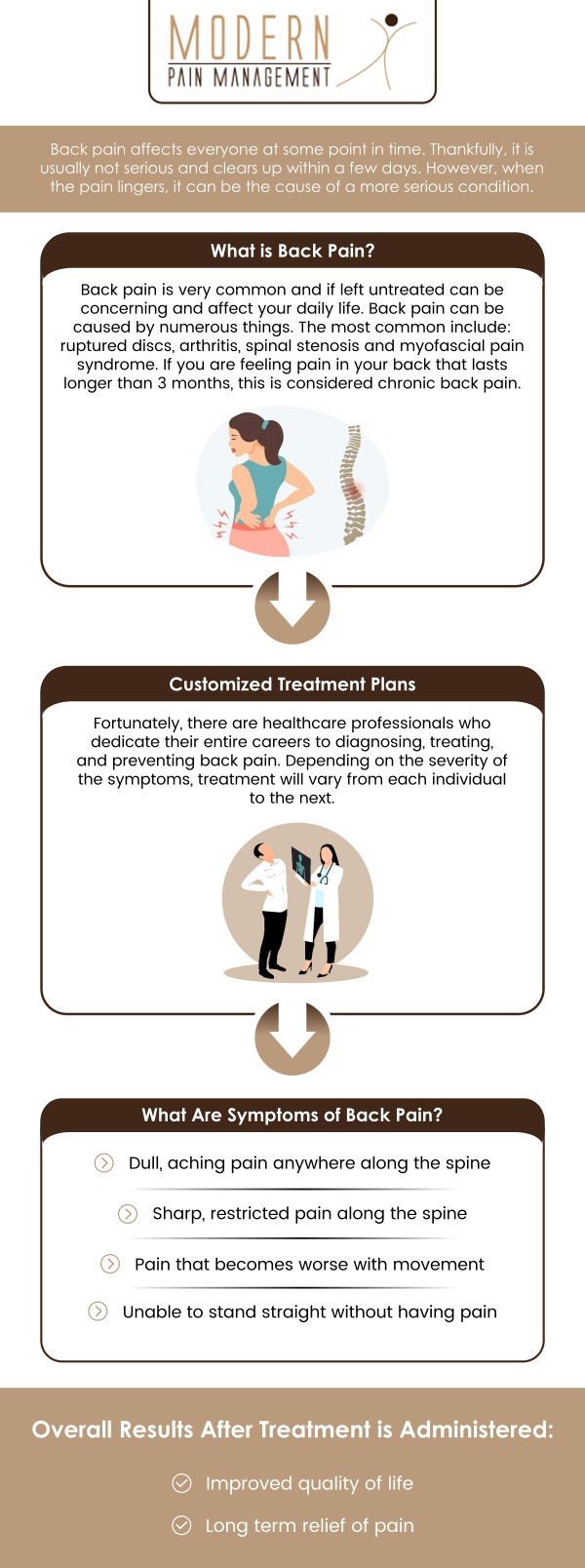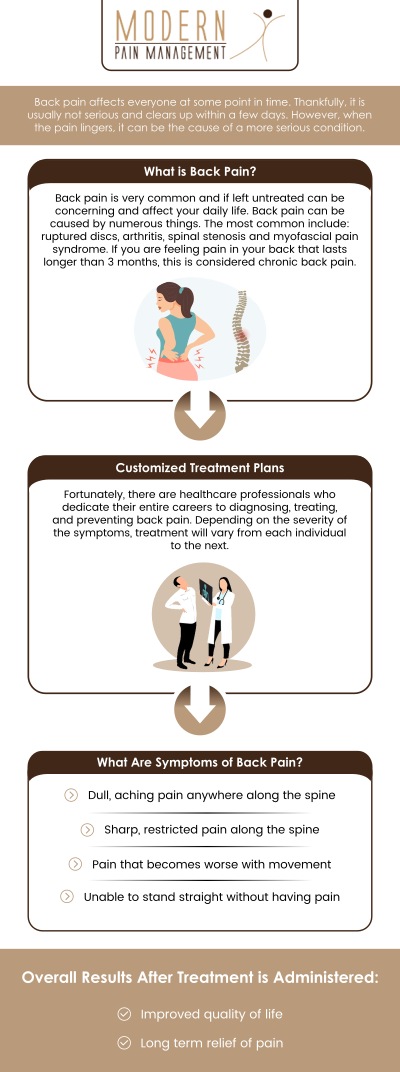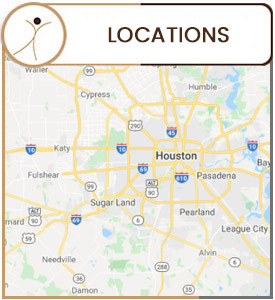When Can a Doctor Help Your Back Pain?
Back pain may vary from subtle, continuous aches to severe, sudden pain. Acute back pain appears quickly and lasts for a few days to weeks while chronic back pain persists for longer than three months. Treatment for back pain is determined by the type of pain and the source of the pain which may include hot or cold packs, physical activity, medications, injections, alternative treatments, and, sometimes surgery. Dr. George Atallah DO, at Modern Pain Management, offers extensive pain management for a variety of pain conditions. For more information, contact us or book an appointment online. We have convenient locations to serve you in Houston TX and Sugar Land TX.




Table of Contents:
What can a doctor do for back pain?
How do you know when back pain is serious?
How can you tell if back pain is muscular or something else?
What does herniated disc back pain feel like?
When it comes to back pain, healthcare providers play a crucial role in facilitating accurate diagnosis and effective treatment solutions. Some of the key ways a doctor can help with back pain include:
• Diagnosis – A doctor will carefully evaluate your symptoms and medical history, as well as perform a physical exam to determine the cause of your back pain. Diagnostic tests such as X-rays, MRI, or CT scans may be used for a more detailed evaluation.
• Pain management – Depending on the cause and severity of your back pain, the doctor may prescribe pain management techniques such as medications, physical therapy, heat or cold therapy, radiofrequency ablation, or injections to alleviate pain and inflammation.
• Lifestyle guidance – Healthcare professionals can provide advice on lifestyle modifications to improve your back pain. These include stretching routines, ergonomic adjustments, and posture correction techniques.
By consulting a doctor, you can receive personalized care and guidance for your specific condition. Our healthcare team is skilled at developing comprehensive treatment approaches to alleviate discomfort and improve your general well-being.
Back pain ranges from mild discomfort to severe and debilitating pain. Certain signs and symptoms can point to a serious underlying condition, including:
• Severe pain – Intense pain that persists despite rest and over-the-counter pain medications often indicates a more serious issue.
• Numbness or tingling – The presence of numbness, tingling, or weakness in your body can indicate nerve injury or compression.
• Fever – If your back pain is accompanied by fever, it’s often a sign of an infection.
• Bowel or bladder dysfunction – Difficulty controlling urination or bowel movements, or experiencing loss of bladder or bowel control, could be a sign of a serious spinal condition and requires prompt medical attention.
• Trauma or injury – Pain following a fall, accident, or trauma should be evaluated by a healthcare professional to rule out severe injuries.
Determining if your back pain is muscular or originates from other sources is challenging and best done by a medical professional. Some considerations include:
• Pain triggers – Muscular back pain is often aggravated by certain movements or activities that engage the affected muscles. If your pain worsens with specific motions or positions, it could be related to muscle strain or tension.
• Muscle tenderness – Palpating the affected area will reveal tender spots and muscle knots, indicating muscular involvement.
• Location of pain – Muscular back pain typically affects specific muscle groups or regions of the back, such as the lower or upper back. Pain that radiates down the leg or into other areas often suggests nerve involvement.
• Response to rest and movement – Muscular pain usually improves with rest, gentle stretching, and self-care measures.
• Associated symptoms – Neurological symptoms such as numbness, tingling, or weakness in the extremities often indicate nerve involvement or other underlying conditions.
These indicators are not definitive and a healthcare professional should evaluate your back pain for an accurate diagnosis. If you’re unsure about the cause of your back pain or if it persists or worsens with time, it’s recommended to consult an expert on our team.
Herniated disc back pain is different from person to person, but the most prevalent descriptors include:
• Sharp or shooting pain – The pain caused by a herniated disc is often described as sharp, shooting, or electric-like. It comes on suddenly or is triggered by specific movements or activities.
• Radiating pain – Herniated disc pain often radiates along the path of the affected nerve. For example, if the herniation is in the lower back, the pain usually travels down the buttock, thigh, and into the leg or foot. This condition is known as sciatica.
• Numbness or tingling – In addition to pain, a herniated disc can cause sensations of numbness, tingling, or pins and needles in the area served by the affected nerve.
• Muscle weakness – In some cases, a herniated disc can lead to muscle weakness and difficulty with certain movements.
Treatment for back pain is available at Modern Pain Management. For more information, contact us or book an appointment online. We have convenient locations to serve you in Houston TX and Sugar Land TX We serve patients from Houston TX, Sugar Land TX, Pearland TX, Jersey Village TX, Missouri City TX, Stafford TX, and Richmond TX.
Check Out Our 5 Star Reviews

ADDITIONAL SERVICES YOU MAY NEED




